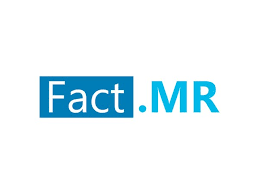Marine Scrubber Systems Market Boosts Cost-Effective Fuel Use

The global marine scrubber systems market is expected to reach US$ 17.06 billion by 2032, growing at a CAGR of 10.4% from 2022. This blog dives into the market’s growth drivers, trends, challenges, and future prospects.
What Are Marine Scrubber Systems?
Marine scrubbers are devices installed on ships to remove harmful pollutants, primarily SOx, from exhaust gases. They allow vessels to continue using HSFO while meeting International Maritime Organization (IMO) regulations, such as the 2020 sulfur cap, which limits sulfur content in fuel to 0.5% globally (down from 3.5%). Scrubbers come in three main types:
- Open-Loop: Uses seawater to scrub exhaust, discharging treated water back into the sea.
- Closed-Loop: Recirculates water with additives like sodium hydroxide, minimizing discharge.
- Hybrid: Combines both modes for flexibility.
Wet scrubbers, which use water-based solutions, dominate due to their efficiency and ability to utilize seawater during voyages.
Drivers of Market Growth
- Stringent Environmental Regulations
The IMO’s 2020 sulfur cap has been a game-changer, pushing shipowners to either switch to low-sulfur fuel (LSFO) or install scrubbers. Since LSFO is significantly more expensive, scrubbers offer a cost-effective alternative, driving their adoption. - Cost Savings
HSFO is cheaper than LSFO, and scrubbers allow ships to recover installation costs within a few years through fuel savings. This financial incentive is particularly strong for large vessels with high fuel consumption. - Rising Global Trade
Increased demand for water-based cargo transport, fueled by e-commerce and globalization, has expanded the maritime fleet. New and retrofitted ships are increasingly equipped with scrubbers to remain competitive. - Technological Advancements
Innovations like Mikrotech’s MECOS and Daphne Technology’s nanotech-based filters are enhancing scrubber efficiency and reducing maintenance costs. These advancements make scrubbers more appealing to shipowners.
Emerging Trends
- Dominance of Wet Scrubbers
Wet scrubbers, particularly hybrid systems, are preferred for their high efficiency and adaptability. Japan’s first IMO-approved hybrid SOx scrubber, introduced in 2015, set a benchmark for performance. - Focus on Sustainability
Startups like Mikrotech and Daphne Technology are innovating with solutions like flue gas purification and emission control filters, targeting large ocean-going vessels. These technologies address environmental concerns around open-loop scrubber discharge. - Retrofit Demand
Many shipowners are retrofitting existing vessels with scrubbers to comply with regulations without switching fuels. This trend is boosting market growth, especially in Asia and Europe. - Product Innovation
Manufacturers are launching high-quality scrubbers to meet stricter standards. Multinational collaborations, such as those seen in Japan and Europe, are driving on high-performance systems to capture market share.
Challenges Facing the Market
- Environmental Concerns: Open-loop scrubbers discharge acidic washwater, raising concerns about marine pollution. Some ports have banned their use, pushing demand toward closed-loop or hybrid.
- High Initial Costs: Scrubber installation can cost millions, a barrier for smaller operators. However, long-term fuel savings often outweigh this.
- Regulatory Uncertainty: Evolving regulations could require additional investments in scrubber upgrades or alternative fuels, creating uncertainty for shipowners.
- Maintenance Requirements: Scrubbers require regular maintenance, which can disrupt operations and add costs.
Regional Insights
Europe leads the market due to strict Emission Control Areas (ECAs) in the Baltic and North Seas. Asia-Pacific, particularly China and South Korea, is the fastest-growing region, driven by shipbuilding activity and regulatory compliance. North America is seeing steady growth, with U.S. ports enforcing similar standards.
Future Outlook
The marine scrubber systems market is poised for strong growth, reaching US$ 17.06 billion by 2032. Key opportunities include:
- Green Technology Integration: Combining scrubbers with carbon capture or hybrid fuel systems could address broader decarbonization goals.
- Expansion in Emerging Markets: As trade grows in regions like Africa and Southeast Asia, demand for scrubbers will rise.
- Collaborative Innovation: Partnerships between startups, manufacturers, and regulators can drive cost-effective, eco-friendly scrubbers.
However, addressing environmental concerns around washwater discharge and ensuring affordability will be critical. The market clarity on regulations will also boost investor confidence.
Conclusion
Marine scrubber systems are a vital tool for the maritime industry’s sustainability journey. As they navigate IMO regulations and rising fuel prices, with a projected market value of US$ 17.06 billion by 2032, scrubbers offer a practical solution. As technology evolves, the market must balance compliance, cost, and environmental impact to sustain growth, ensuring cleaner seas for future generations.
- Information Technology
- Office Equipment and Supplies
- Cars and Trucks
- Persons
- Books and Authors
- Tutorials
- Art
- Causes
- Crafts
- Dance
- Drinks
- Film
- Fitness
- Food
- Spellen
- Gardening
- Health
- Home
- Literature
- Music
- Networking
- Other
- Party
- Religion
- Shopping
- Sports
- Theater
- Wellness


